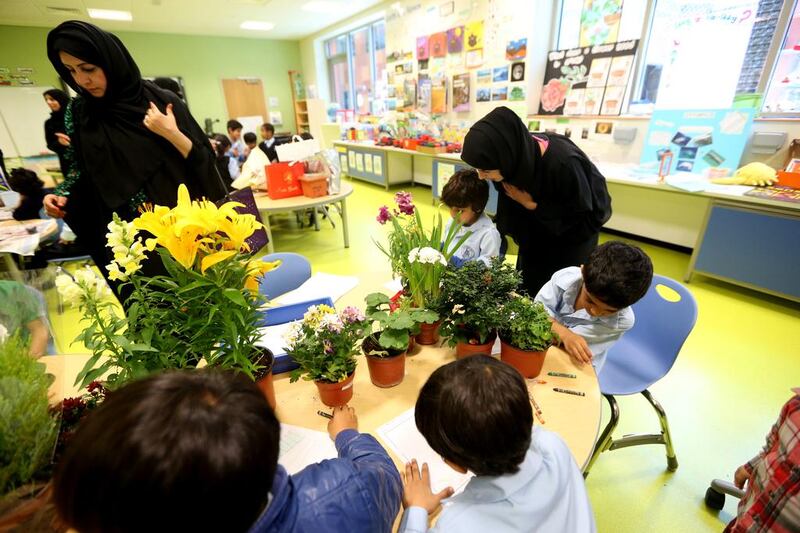In a significant shift of cultural and educational policy, grade one classes at all public schools in the UAE will be co-educational from this month. But why? According to a recent article in The National, it seems that the hope is that girls will be a civilising influence on mischievous boys. However, this kind of educational instrumentalism − the use of children for some other motive − might well miss its target.
If we assume that this move is an attempt to improve the significant underperformance of boys in schools across the UAE, then those in charge of making policy could be far better off focusing their attention on the boys’ parents than the gender balance of classrooms.
When it comes to student outcomes, parents matter more than almost everything else. Research by organisations such as the International Bureau of Education and the UK government's department for schools, children and families has shown that family interest in hobbies, games and activities has a strong positive correlation with a child's success in academic learning. While supporting activities in school is of undoubted benefit, parental support of learning within the home environment has a bigger impact.
The responsibilities of parenthood are multi-faceted, ongoing and critical to the success of our offspring, regardless of wealth or social class. Reinforcing this point, the International Bureau of Education report Parents and Learning notes that there are three broad types of family in all modern societies: distressed families, child-centred families and parent-centred families. It also points out that none them are immune from under-supporting their offspring.
Affluent professional parents, for example, might be prepared to pay large sums to secure a high-quality education for their children. However, they could end up focusing on the pursuit of money and career advancement to such a degree that they become disengaged from the day-to-day practicalities of their children's development.
There is a sad irony here. By working hard to provide the best opportunities, these parents believe that they are giving their children a leg-up in life. However, by placing their sons and daughters in the best schools and entrusting them to extra-curricular tutors and coaches, they might actually be providing them with everything but the one magic ingredient of success: themselves.
The evidence that is perhaps most important for parents of secondary-school children comes from the UK government's department for education and skills: that the extent of parental involvement diminishes as children get older and begin to naturally seek independence. Unfortunately, this often coincides with pivotal points such as the exam period.
The Centre for Real World Learning at the University of Winchester in the UK has published a concise and informative guide on how to enhance parental engagement. Many of its suggested measures begin in the home, with parents being advised to establish a daily routine for their children that includes adequate time to eat, sleep and play, plus a period of formal study.
Setting aside a quiet place for academic work is encouraged, as is the use of complex vocabulary in family conversation, regular discussions about school progress and current events, and reading for a range of purposes.
In addition to these domestic arrangements, cultural activities such as visits to libraries, museums and historic sites, and support in developing hobbies, asking questions and trying out new things are all cited as effective ways to build a strong and practical “curriculum of the home”.
With such compelling evidence available, it appears that investing in the education of parents is likely to have a far greater impact on boys’ behaviour and learning outcomes than any rearrangement of the classroom ever could.
Michael Lambert is headmaster of Dubai College





